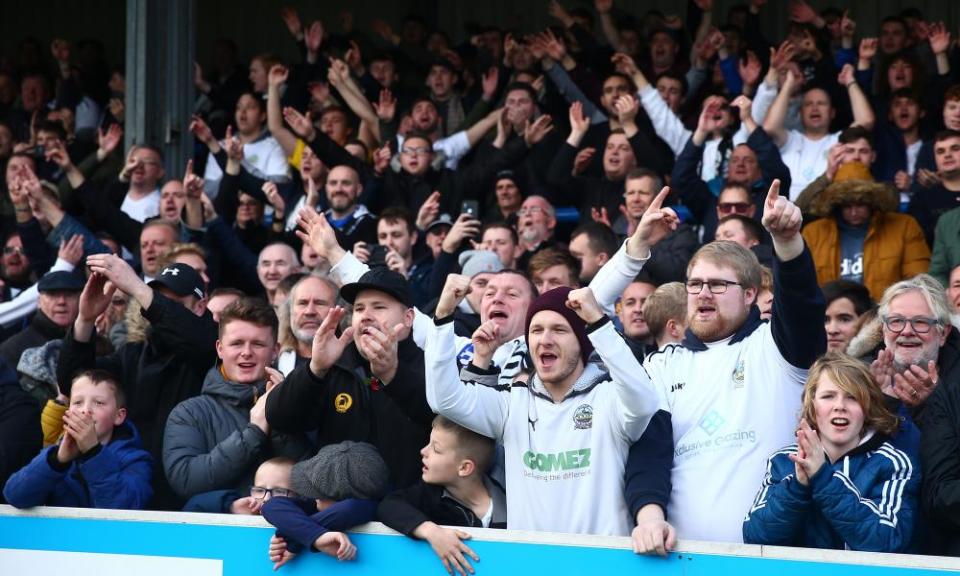'We have got a week to two weeks left': Dover Athletic face fan-less threat to future

For Dover, the outlook could not be starker. The National League club are, according to their chairman, Jim Parmenter, as close as a week away from going out of business, unless they receive reassurances the fifth-tier season will soon begin with supporters in attendance.
It is a sickening thought for Parmenter, who has invested more than £4m in 15 years, but confirmation the government has shelved the phased reintroduction of fans has left clubs throughout the pyramid fretting over their immediate futures.
Related: FA cuts to hit grassroots football and futsal hard, leaked documents show
Parmenter previously warned they could become the first professional club to collapse as a result of the coronavirus pandemic and the reversal on fans being allowed into matches in October could be the final straw for Dover, who cannot plough on without matchday income as they continue to foot monthly bills of about £80,000. On Thursday, the National League board is expected to postpone the new season because many clubs fear it is not viable to start without supporters.
“We have got a week to two weeks left, without some kind of decision on when we can start,” says Parmenter. “We have to start with fans; it is impossible without fans. We have already spent significant amounts of cash on training and preparations for the start of the season, so that money has gone. We are reliant on sponsorship, gate money, tea and bar revenue, things like that to pay the bills, and none of that looks likely going forward.”
Asked what the next week or so looks like, Parmenter explains much hinges on whether the government U-turns on allowing some fans to return. “If they are saying we’re just going to delay it by a couple of weeks, that’s a different answer to ‘We don’t know’,” he says. “If they say we’re going to start in January: a) there is not enough time to play the 40-odd games and b) by then it will be too late. The most likely scenario is we will have to close the doors.”
In the next 48 hours, Parmenter plans to meet players and staff to paint what is a bleak picture. Last month he made the entire squad available on free transfers to cut costs, after claiming the players refused a 20% wage reduction. “I’m going to revisit that,” he says.
The majority of Dover’s players, most of whom earn £600-£900 per week, were brought off furlough at the end of August to train before the proposed 3 October start, while a handful of player contracts will not kick in unless a new season begins. “For the existing players it will be: ‘Sorry, for the moment, we cannot pay you,’” says Parmenter. “And that will have serious implications because football contracts are not like employment contracts – you cannot make people redundant from a football contract.”
Dover, like many lower-league clubs, cannot begin to contemplate Covid-19 testing given the cost. Season-ticket sales account for more than 60% of the club’s current cash reserves – around £100,000 – but Parmenter will not lean on those funds.
“The biggest problem is we cannot spend our season-ticket receipts because we don’t know if and when the season is going to start. We have made it clear to supporters that have bought season tickets that we would ring-fence that money and if the season doesn’t start we will refund that money to season-ticket holders because it’s the right thing to do.”
If this is the final nail in the coffin for Dover, it will represent a heart-breaking end for Parmenter, who assumed control of the club that was in the eighth tier. “It has been a huge investment – it’s a labour of love but it looks like it is all going to go,” he says. “Anybody that is as deeply involved as we are, it is part of your life. We’ve always managed it prudently but this is a situation that could destroy everything. We are in big trouble.”

 Yahoo News
Yahoo News 